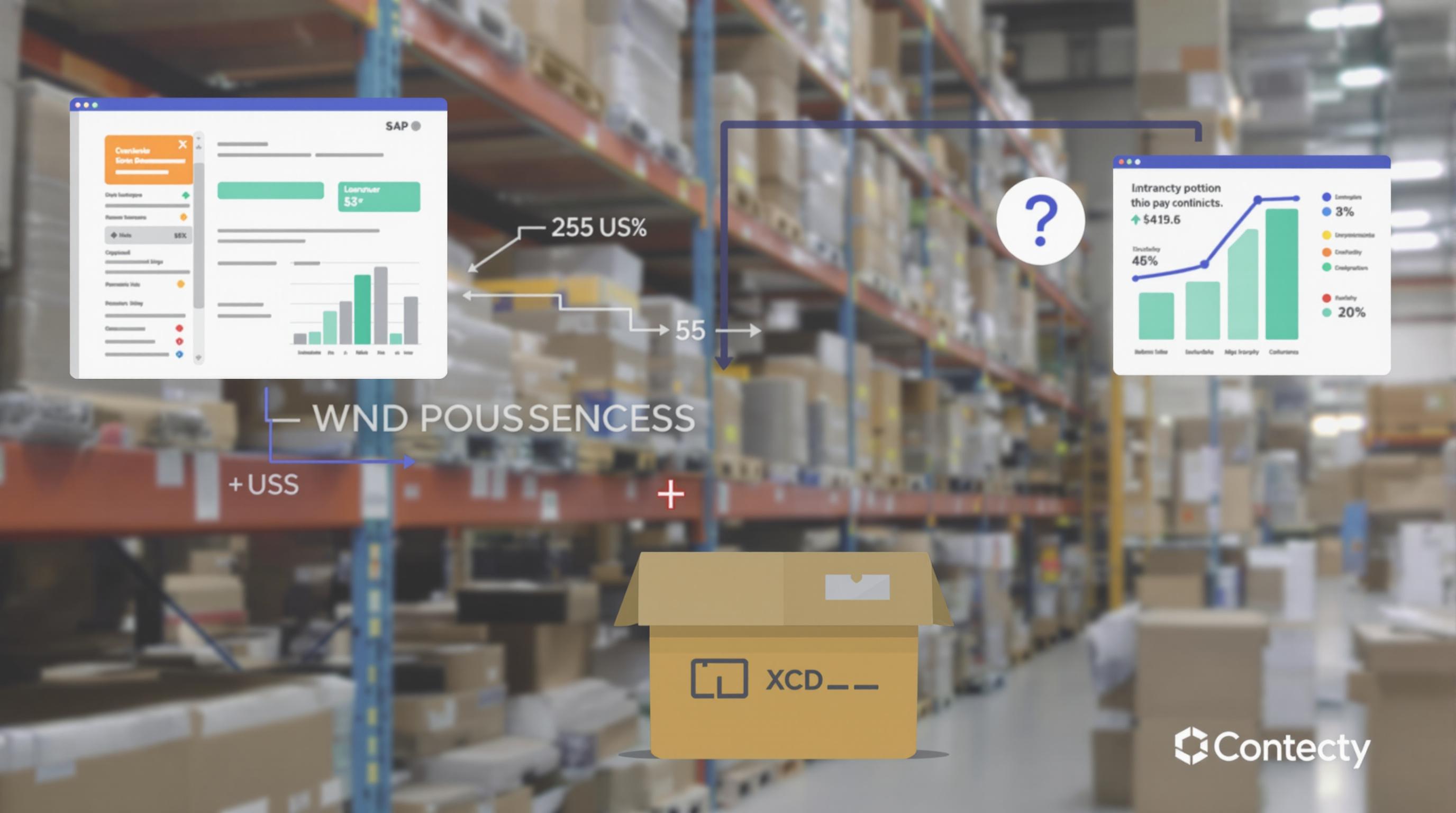Related Articles
- How Emotional Spending Biases in Leadership Can Influence Company Financial Transparency and Accountability
- Unveiling the Role of Employee Psychology in Shaping Unexpected Business Budget Outcomes
- Top 6 Disruptive Invoice Platforms Launched Since 2019 Tackling Automation Bottlenecks in Unconventional Ways
- Top 6 Smart Accounting Softwares Since 2019 That Revolutionize Tracking Business Tax Write-Offs
- The Rise of Biometric Authentication in Digital Finance: A New Frontier for Secure Business Transactions
- How Small Nonprofits Leverage Alternative Finance Tools to Navigate Accounting Challenges Off the Radar
9 Advanced Accounting Software Options for Businesses Seeking More Than Just QuickBooks Features
9 Advanced Accounting Software Options for Businesses Seeking More Than Just QuickBooks Features
9 Advanced Accounting Software Options for Businesses Seeking More Than Just QuickBooks Features
QuickBooks has long been a favorite among small businesses for its user-friendly interface and comprehensive accounting tools. However, as companies grow and their financial needs become more complex, many seek alternatives that offer advanced capabilities beyond what QuickBooks provides. From enhanced automation and custom reporting to industry-specific solutions, the evolving landscape of accounting software can empower businesses with deeper insights and greater operational efficiency.
This article explores nine advanced accounting software options ideal for businesses that require more robust features. Each software offers unique strengths, whether it’s scalability, integration capabilities, or specialized functions catering to specific sectors. By examining these alternatives, business owners can find the right fit that aligns with their strategic goals and accounting requirements.
We’ll analyze factors such as usability, cost, scalability, and distinct features to help guide your decision-making process. Whether you’re a mid-sized enterprise or a rapidly growing startup, these solutions may unlock new possibilities for managing your finances effectively and gaining competitive advantages.
1. NetSuite ERP
NetSuite ERP by Oracle is a cloud-based enterprise resource planning system that integrates accounting, CRM, inventory, and e-commerce. It is designed for medium to large businesses that demand a scalable and comprehensive system beyond basic bookkeeping. NetSuite’s financial management includes automated billing, multi-currency support, and advanced revenue recognition features.
Its strong reporting tools enable real-time financial visibility with customizable dashboards and analytics. Users appreciate NetSuite for streamlining workflows and reducing manual data entry, which enhances accuracy and saves time. The software also supports compliance requirements, making it suitable for regulated industries.
While its pricing is higher than QuickBooks, the return on investment can be substantial through improved efficiency and data insights. For growing businesses seeking an all-in-one cloud ERP solution, NetSuite represents a leading choice on the market today (Oracle NetSuite).
2. Sage Intacct
Sage Intacct specializes in cloud accounting and financial management, particularly for mid-sized enterprises and finance teams with complex requirements. It excels at delivering multi-entity consolidations, project accounting, and customizable workflows that adapt to diverse business processes.
The platform’s API-first architecture makes integrations seamless, connecting with CRM, payroll, and other business tools to create a unified ecosystem. Sage Intacct’s audit trails, regulatory compliance functionality, and strong security measures provide additional assurances for finance leaders.
Businesses appreciate the detailed reporting capabilities and real-time visibility offered, empowering better decision-making and financial control. Sage Intacct continues to win accolades as a top-tier accounting solution suitable for companies expanding beyond QuickBooks capabilities (G2, 2024).
3. Microsoft Dynamics 365 Finance
Microsoft Dynamics 365 Finance is an advanced enterprise resource planning solution tailored for large organizations with international operations. It boasts comprehensive financial management features, including budgeting, forecasting, and automated accounts payable/receivable.
This solution integrates seamlessly with the broader Microsoft ecosystem, such as Azure cloud services and Power BI, providing powerful insights and enhanced productivity through AI-driven analytics. Businesses can automate complex financial processes and compliance reporting, reducing risks and errors.
Though it requires more implementation effort and investment than QuickBooks, Dynamics 365 Finance is a robust platform for companies that need to streamline global finance operations and gain strategic insights (Microsoft, 2024).
4. Xero
Xero is a cloud-based accounting software gaining traction as a feature-rich alternative for small to medium businesses. While it shares some ease of use with QuickBooks, Xero offers advanced tools such as multi-currency accounting, extensive third-party integrations, and detailed financial reporting.
It emphasizes collaboration with advisors and teams, offering unlimited user access without additional cost, unlike QuickBooks. Xero also includes automated bank feeds, invoicing, and inventory management to optimize everyday accounting tasks.
Its affordability and powerful features make Xero popular among growing businesses needing more flexibility and connectivity in their financial software (PCMag, 2023).
5. FreshBooks Advanced
FreshBooks, traditionally known for its invoicing capabilities, now offers an Advanced plan geared towards businesses with complex accounting needs. This tier adds features such as auto-billing, advanced payments, and sophisticated expense management.
FreshBooks Advanced includes robust time tracking with project profitability analytics—beneficial for service-based businesses. It also supports integrations with over 100 apps including payment processors and CRM platforms.
For businesses preferring an intuitive interface but requiring more than basic accounting, FreshBooks Advanced strikes a balance between usability and advanced financial features (FreshBooks, 2024).
6. Zoho Books
Zoho Books is part of the broader Zoho ecosystem, providing advanced accounting functionality tightly integrated with CRM, inventory, and project management tools. It supports automated workflows, tax compliance, and multi-currency transactions suited for global businesses.
The platform leverages AI to automate bank reconciliations and monitor expenses, saving time and reducing errors. Reports and audit logs are customizable, giving businesses control over financial tracking and transparency.
Zoho Books offers an affordable yet powerful solution for companies expanding their operations and seeking comprehensive cloud-based accounting within a larger business software suite (Zoho, 2024).
7. Wave Accounting Plus
Wave Accounting Plus elevates the free version of Wave by including advanced payroll, payment processing, and enhanced customer support. It is suitable for small businesses that need more than the basics without moving into expensive or complex software.
Its easy onboarding, intuitive interface, and automatic syncing of bank accounts reduce setup time. While not as feature-rich as enterprise solutions, Wave’s Plus plan includes compliance tools to handle tax deductions and employee payments reliably.
Wave remains a practical upgrade for startups and small businesses scaling operations but still wanting affordability combined with essential advanced features (Wave, 2023).
8. Kashoo
Kashoo is designed for small businesses and freelancers looking for simplicity with some advanced financial management capabilities. It offers automated bank feeds, expense tracking, and multi-currency support along with collaborative invoicing.
Kashoo’s standout feature is its user-centric design that facilitates easy bookkeeping without sacrificing necessary accounting rigor. It supports real-time expense categorization and has reliable customer support with accounting expertise.
While not as comprehensive as enterprise systems, Kashoo provides an accessible step up from QuickBooks Online for businesses needing additional reporting and multi-user access (Kashoo, 2023).
9. Acumatica Cloud ERP
Acumatica is a cloud ERP solution featuring extensive accounting and financial management modules. It’s built for medium-sized businesses requiring customization, multi-entity support, and integration with other enterprise applications.
Its flexible deployment options, including private or public cloud, and industry-specific functionality make it appealing to manufacturing, distribution, and retail sectors. Acumatica emphasizes automation to reduce manual accounting tasks and improve operational efficiency.
Though it requires a dedicated implementation, Acumatica provides powerful scalability and reporting tools that outmatch many traditional accounting systems (Acumatica, 2024).
Conclusion
Businesses growing beyond QuickBooks’ capabilities can benefit from exploring advanced accounting software options. Each of the nine alternatives discussed offers unique strengths tailored to different organizational needs, sizes, and industries.
From cloud ERP solutions like NetSuite and Dynamics 365 to user-friendly platforms like Xero and FreshBooks Advanced, the marketplace now offers flexibility, automation, and deep financial insights at various price points. Choosing the right system depends on your company’s complexity, integration requirements, and budget.
Careful evaluation of features, scalability, and user experience will enable businesses to select software that not only manages accounting efficiently but also contributes to strategic financial planning and sustainable growth.





